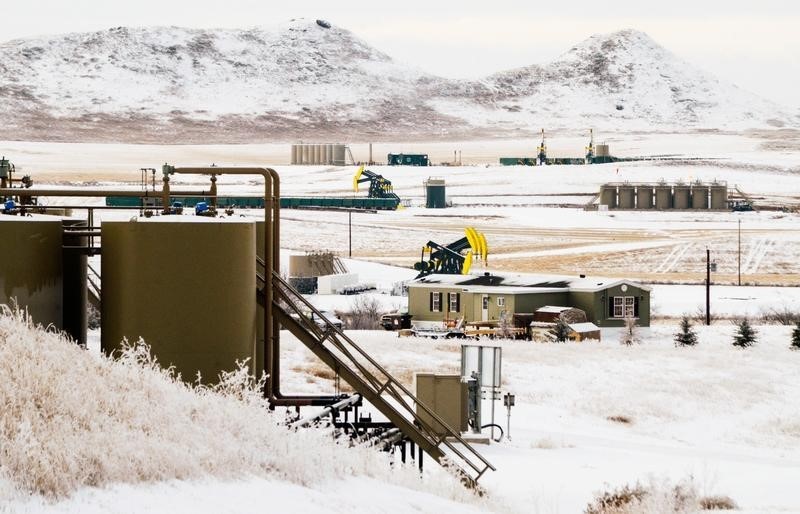By Barani Krishnan
NEW YORK (Reuters) - Oil prices fell more than 3 percent on Monday after traders took in their stride the impact of wildfires on Canada's oil output and after another inventory build at the U.S. hub for crude futures.
The market rallied 2 percent earlier in the session as investors considered the daily loss of more than 1 million barrels per day in Canadian supply. Almost all of Canada's crude from oil sands is exported to the United States.
But with speculators already holding the largest number of wagers for a hike in U.S. crude's West Texas Intermediate futures (CLc1) since last summer and near-record high bullish bets on Brent (LCOc1), the scope for further gains was limited without clarity on the extent of damage to oil facilities or supply outages, analysts said.
Some analysts said the wildfire could still be a supportive factor, with officials saying resuming operations would be a challenge and no timeline had been conceived.
"This production is not gone for good, yet when fires are controlled, restarting production will take several more weeks, even without damage," energy analysts at Morgan Stanley (NYSE:MS) said in a note.
Oil prices have rebounded by some two-thirds since hitting 12-year lows of around $27 or lower in the first quarter, supported by falling U.S. production, unexpected supply constraints in Libya and the Americas as well as a weaker dollar.
Adding to Monday's bearish sentiment was market intelligence firm Genscape's report of an inventory build of 1.4 million barrels at the Cushing, Oklahoma delivery hub for WTI futures.
"Positioning has been already very stretched in the oil market ... Some must have taken the opportunity to exit, so that's one angle that momentum is slowing down," Barclays (LON:BARC) Capital commodities strategist Miswin Mahesh said.
WTI (CLc1) fell $1.20, or 2.6 percent, to $43.46 a barrel by 11:25 a.m. EDT (1525 GMT). It had rallied as much as $1.28 in Asian trading.
Brent (LCOc1) fell $1.68, or 3.6 percent, to $43.70, after rising to $46.48 earlier.
WTI, which usually trades at a discount to Brent
Prices saw brief support after Goldman Sachs (NYSE:GS) said it held a long-term view of $50-$60 for WTI.
Markets were also watching Saudi Arabia, the world's biggest oil exporter, where a government shake-up over the weekend included the appointment of Khalid al-Falih as head of the new Ministry of Energy, Industry and Mineral Resources.

"Changes in Saudi Arabia oil leadership only underscore the shift in strategy to one focused on market share over price," Morgan Stanley said.